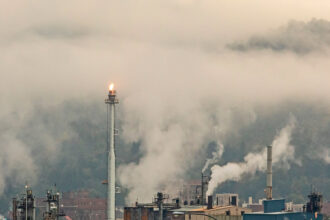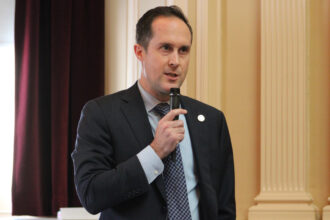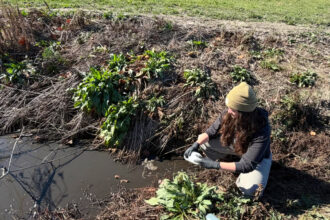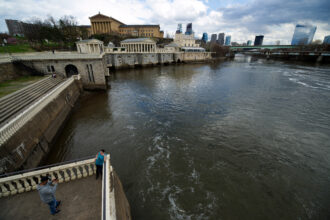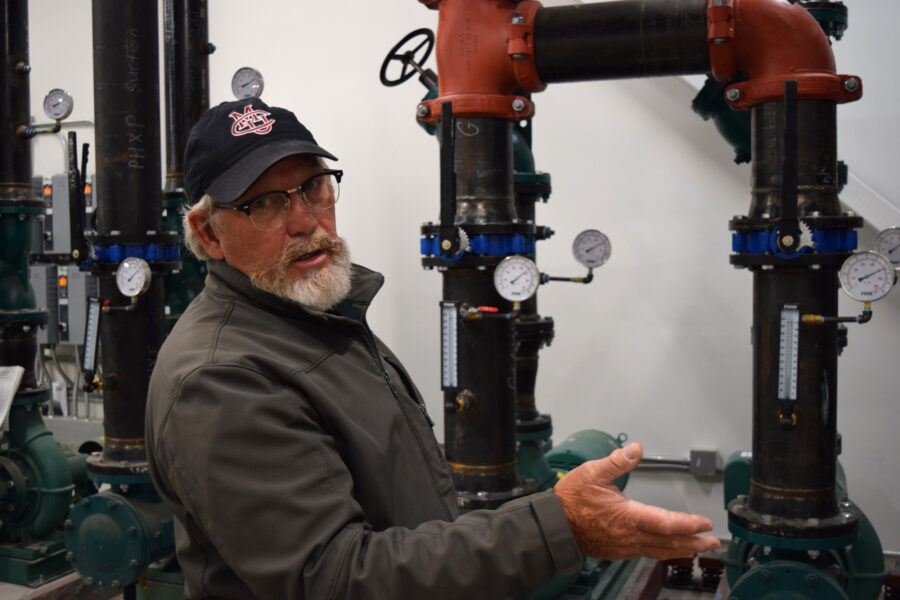British Scientist Steps Down During Probe of Hacked E-Mails (Washington Post)
Phil Jones, a central figures in the uproar over hacked e-mails from the University of East Anglia’s Climate Research Unit, announced he is stepping down as the unit’s director while the university investigates.
Australia to Reintroduce Emissions Trading Plan in 2010 (Business Spectator)
Australia’s government, stung by a second parliamentary defeat of its climate program, will reintroduce an emissions trading plan in February, the acting prime minister says.
Financial Reform Debate May Influence Climate Bill (ClimateWire)
The U.S. Senate’s decision to take up financial regulatory reform before a climate bill could have significant implications for the choice of a trade mechanism as the vehicle of choice to meet emission targets.
Brazil to Push for 10% Limit on REDD Carbon Offsets (Mongabay)
Brazil is expected to propose limiting the amount of carbon an industrialized country can offset via a proposed forest conservation initiative to 10 percent of their emissions.
Report: Indonesia Loses Billions from Forest Corruption (COP15)
Indonesia cannot be trusted to lock up its forests as part of future global carbon trading scheme while corruption in the logging industry remained a two$2 billion-a-year problem, a human rights group says.
Chinese Official Says UN Halted Wind Project Certification (Bloomberg)
The United Nations has stopped approving aid for Chinese wind-power projects until it determines whether they qualify fairly, a Chinese official said.
Global Warming Threatens China’s Harvest (Reuters)
Droughts and floods stoked by global warming threaten to destabilize China’s grain production, the nation’s top meteorologist has warned, urging bigger grain reserves and strict protection of farmland and water supplies.
UNEP Official: Poor Countries Will Need Far More than $10B a Year (AP)
While UN climate chief Yvo de Boer has said rich countries "must put at least $10 billion a year on the table,” a top UNEP official says the world’s poor nations will need far more, closer to $75 billion to $100 billion a year to help them adapt to climate change.
Sen. Kerry Proposes Obama Budget $3B for Poor Nations (Reuters)
U.S. Sen. John Kerry, a leading advocate of climate control legislation, recommended the Obama administration include $3 billion in next year’s budget to fund poor nations’ efforts to address climate change.
Ontario Inches Toward Cap-and-Trade Plan (Reuters)
Ontario has set reporting rules for CO2 emissions, a step toward a cap-and-trade program that will help Canada’s manufacturing heartland cut industrial emissions.
Mexico to pledge halving emissions by 2050 (AFP)
During crunch talks in Copenhagen next week, Mexico will propose to slash its greenhouse gas emissions 50 percent by 2050 — as long as it gets international aid.
California Water Allocation Hits Record Low (Reuters)
California officials say drought and environmental restrictions have forced them to cut planned water deliveries to irrigation districts and cities statewide to just 5 percent of their contracted allotments.
Idaho Power Plant Permit Raises the Bar (Statesman)
Idaho’s Department of Environmental Quality set a precedent when it issued a permit requiring a proposed power plant to limit CO2 emissions to 58 percent of what a comparable facility now emits.
RGGI States Show CO2 Curbs Aren’t Scary (Baltimore Sun)
The Northeast’s Regional Greenhouse Gas Initiative auctions off its sixth batch of permits today. The program is setting the stage for substantial emission reductions, and despite the cries from inside the Beltway that it will cripple the economy, so far, hardly anybody notices the impact.
In Denmark, Ambitious Plan for Electric Cars (New York Times)
Is saving $40,000 at the showroom enough to get drivers behind the wheel of an electric car? With a program in the works to add easy access to charging stations, Denmark is about to find out.
About This Story
Perhaps you noticed: This story, like all the news we publish, is free to read. That’s because Inside Climate News is a 501c3 nonprofit organization. We do not charge a subscription fee, lock our news behind a paywall, or clutter our website with ads. We make our news on climate and the environment freely available to you and anyone who wants it.
That’s not all. We also share our news for free with scores of other media organizations around the country. Many of them can’t afford to do environmental journalism of their own. We’ve built bureaus from coast to coast to report local stories, collaborate with local newsrooms and co-publish articles so that this vital work is shared as widely as possible.
Two of us launched ICN in 2007. Six years later we earned a Pulitzer Prize for National Reporting, and now we run the oldest and largest dedicated climate newsroom in the nation. We tell the story in all its complexity. We hold polluters accountable. We expose environmental injustice. We debunk misinformation. We scrutinize solutions and inspire action.
Donations from readers like you fund every aspect of what we do. If you don’t already, will you support our ongoing work, our reporting on the biggest crisis facing our planet, and help us reach even more readers in more places?
Please take a moment to make a tax-deductible donation. Every one of them makes a difference.
Thank you,





